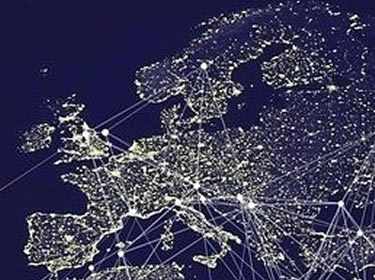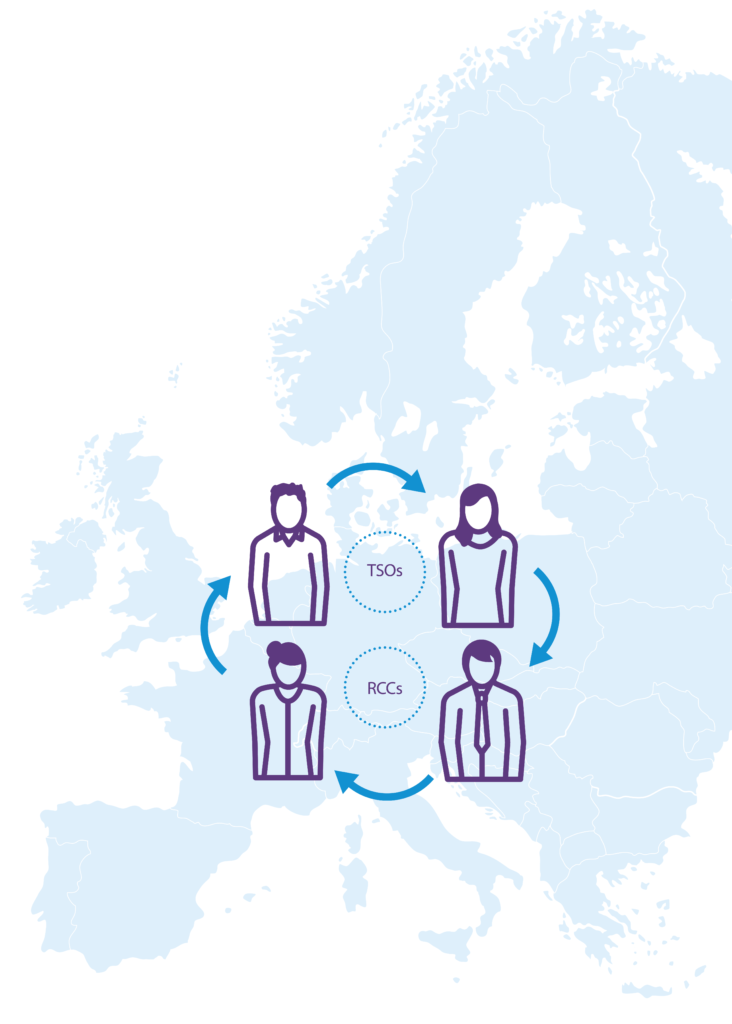A new environment
Without a doubt, the operational reality surrounding electricity transmission in Europe has evolved a lot over the past decades. The key evolutions in the electricity transmission sector over the last 20 years include:
- Liberalisation of the electricity market, which gave market players more freedom to adapt their generation pattern and take part in cross-border trade;
- Increased use of renewable energy generation (wind and solar energy), making generation less predictable as they are by nature intermittent;
- Introduction of new equipment such as phase-shifting transformers (PSTs) and HVDC (High-Voltage Direct Current) cables.

Volumes and directions of European electricity power flows can be highly volatile. Renewable energy’s growing share and the increase in cross-border exchanges within the European electricity market are the main drivers behind this development. This means that power flows are now much more difficult to predict and calculate than in the past, leading to an increased need for more coordination.
European network codes and regulations recognize and anticipate this need for increased coordination in terms of security. That is why they introduced in 2017 the concept of the Regional Security Coordinators (RSCs) to help TSOs guarantee an efficient and secure transmission grid.
Europe aiming at green transition and further enhancing regional coordination, RSCs evolved on 1 July 2022 into Regional Coordination Centres (RCCs). Becoming regulated entities, the Clean Energy Package (CEP) reinforces their key coordination role and requires them to perform additional mandatory tasks which are currently being defined.
Coreso playing a key coordination role at European regional level
The efficient and safe management of the European electricity system requires strong coordination and organizational structures at regional level.
Coreso is the result of one of the European regional initiatives. As RCC, we aim to support Transmission System Operations (TSOs) and to contribute to three objectives, in line with recommendations made by the European Commission:
- Coordinated security of the electricity system;
- Integration of large-scale renewable energy generation;
- Development of the European electricity market.
To do so, RCCs focus on the implementation and delivery of the regulated coordination services or tasks in line with the EU Regulation on the internal electricity market (Regulation (EU) 2019/943), which is part of the 4th Energy Package, also known as Clean Energy Package (CEP). Listed in the Article 37 of this regulation, some of the RCC tasks are still being discussed or defined at European level.
Currently, the following tasks are confirmed to be performed by RCCs:
- Common Grid Model (CGM),
- Coordinated Security Analysis (CSA),
- Coordinated Capacity Calculation (CCC),
- Short-Term Adequacy (STA),
- Outage Planning Coordination (OPC),
- Defence and Restoration Plans,
- Training and Certifications of RCC staff,
- Post-operation and post-disturbances analysis and reporting,
- Regional restoration at request of TSOs,
- Regional sizing of reserve capacity,
- Regional procurement of balancing capacity,
- Supporting inter-TSOs settlement at request of TSOs,
- Identification of regional electricity crisis scenarios,
- Maximum Entry Capacity (MEC) mechanisms,
- Supporting Ten-Year Network Development Plan.
The list of tasks may evolve depending on the discussions at European level.

What is our mission?
As one of the Regional Coordination Centres (RCCs), Coreso proactively supports European Transmission System Operators (TSOs) to ensure the security of electricity supply on a European regional basis.
What do we do?
Coreso provides the RCC mandatory services or tasks to nationally regulated TSOs. Those services are driven by European regulations (3rd and 4th Energy Packages).



